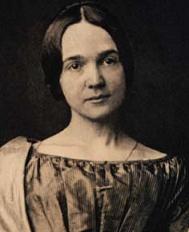 Mary Boykin Chesnut was a Southern lady in the purest tradition, born into South Carolina’s political nobility and educated at one of the finest boarding schools in Charleston. Her husband was the son of a successful plantation owner and an upwardly mobile politico himself.
Mary Boykin Chesnut was a Southern lady in the purest tradition, born into South Carolina’s political nobility and educated at one of the finest boarding schools in Charleston. Her husband was the son of a successful plantation owner and an upwardly mobile politico himself.
Following Lincoln’s election in 1860, James Chesnut helped write South Carolina’s Declaration of Secession and during the subsequent war served as an aide to General Beauregard and President Davis, eventually rising to the rank of General.
Women in such circumstances were expected to be well-educated, but not given much opportunity to use their fancy brains. In retrospect, it might have been kinder to either keep them as ignorant as possible or let them do stuff – but such were the mores of the day. So she read, she observed, and she wrote.
Lots.
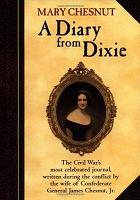 The diary of Mrs. Chesnut is one of the essential primary sources of the Civil War, and still readily available if you’re interested. It’s quite accessible to the casual reader – you won’t even know you’re learning history, I promise.
The diary of Mrs. Chesnut is one of the essential primary sources of the Civil War, and still readily available if you’re interested. It’s quite accessible to the casual reader – you won’t even know you’re learning history, I promise.
The best-known passages describe events in and around her household (a very active place even when wars weren’t being started nearby) as the tensions between North and South approach conflagration, thanks in large part to the stubbornness of Union Colonel Robert Anderson, in command of Fort Sumter in Charleston Harbor.
April 12th. – Anderson will not capitulate. Yesterday’s was the merriest, maddest dinner we have had yet. Men were audaciously wise and witty. We had an unspoken foreboding that it was to be our last pleasant meeting… Mrs. Henry King rushed in saying, “The news, I come for the latest news. All the men of the King family are on the Island,” of which fact she seemed proud.
While she was here our peace negotiator, or envoy, came in – that is, Mr. Chesnut returned. His interview with Colonel Anderson had been deeply interesting, but Mr. Chesnut was not inclined to be communicative. He wanted his dinner. He felt for Anderson and had telegraphed to President Davis for instructions – what answer to give Anderson, etc. He has now gone back to Fort Sumter with additional instructions.
When they were about to leave the wharf A. H. Boykin sprang into the boat in great excitement. He thought himself ill-used, with a likelihood of fighting and he to be left behind!
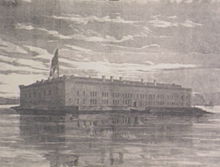 Never has a better case been made for teaching reading and writing, although her keen observations on human nature are perhaps harder to mandate.
Never has a better case been made for teaching reading and writing, although her keen observations on human nature are perhaps harder to mandate.
Mrs. Chesnut’s observations of her husband are appropriately loving and respectful, always. Her subtle commentary on others, however, brings her writing to life. Her snapshots of Mrs. King and the young Boykin are sympathetic, certainly – but tinted with bewilderment over their enthusiasm for war.
The words themselves maintain perfectly plausible deniability, were posterity to challenge her tone – “Me? Oh, no no – I was just noting what I saw and heard… that’s all.” (*fans self with something lavishly decorative*)
 “Men were audaciously wise and witty.” What a marvelous phrase. It sounds like the Mad Hatter’s tea party, but instead of pure chaos, her description is redolent of forced fearlessness and social gilding. F. Scott Fitzgerald has nothing on the wealthy belle when it comes to writing dinner parties.
“Men were audaciously wise and witty.” What a marvelous phrase. It sounds like the Mad Hatter’s tea party, but instead of pure chaos, her description is redolent of forced fearlessness and social gilding. F. Scott Fitzgerald has nothing on the wealthy belle when it comes to writing dinner parties.
I do not pretend to go to sleep. How can I? If Anderson does not accept terms at four, the orders are, he shall be fired upon. I count four, St. Michael’s bells chime out and I begin to hope. At half-past four the heavy booming of a cannon. I sprang out of bed, and on my knees prostrate I prayed as I never prayed before.
There was a sound of stir all over the house, pattering of feet in the corridors. All seemed hurrying one way. I put on my double-gown and a shawl and went, too. It was to the housetop. The shells were bursting. In the dark I heard a man say, “Waste of ammunition.”
I don’t know who the man in the dark may have been, but if this were a work of fiction rather than a primary source, I’d point him out as a brilliant bit of literary slight-of-hand.
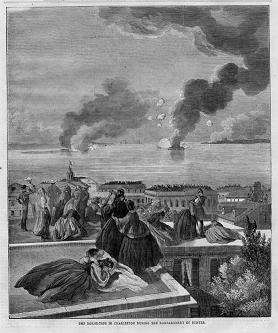 While the rest of the city – and, by proxy, the South – celebrates the opening rounds of what will no doubt prove a majestic little melee, one anonymous voice just out of view notices that they’re firing land weapons at a fort designed to withstand attack by foreign navies.
While the rest of the city – and, by proxy, the South – celebrates the opening rounds of what will no doubt prove a majestic little melee, one anonymous voice just out of view notices that they’re firing land weapons at a fort designed to withstand attack by foreign navies.
Nothing tangible is being accomplished – it won’t work. There’s kerfuffle enough, but no substance. There’s a cost, but for what prize?
I’m no expert on Mary Boykin Chesnut, but if someone who WERE wished to persuade me she’s taken literary license with her account to say things she could not, as a wife and loyal secesh, say – well, I wouldn’t argue.
Last night, or this morning truly, up on the housetop I was so weak and weary I sat down on something that looked like a black stool. “Get up, you foolish woman. Your dress is on fire,” cried a man. And he put me out. I was on a chimney and the sparks had caught my clothes. Susan Preston and Mr. Venable then came up. But my fire had been extinguished before it burst out into a regular blaze.
I realize it’s not exactly gut-splitting to read in the 21st century, but this is funny. It’s the 19th century equivalent of zany slapstick humor.
If only the helpful man had said “nyuk nyuk!” and poked her in the eyes just after.
Do you know, after all that noise and our tears and prayers, nobody has been hurt; sound and fury signifying nothing – a delusion and a snare.
This sentence could be used as an example for about 43 different things in ELA, AND it’s a pleasure to read repeatedly. It’s like literary bruschetta.
And remember that ‘plausible deniability’ from a bit ago? It’s about to get pushed to the limits of of beau monde. That Chesnut is a real card.
Next time.
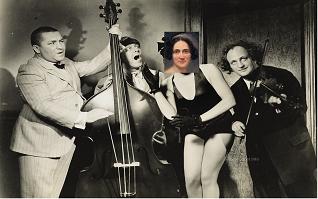
RELATED POST: Intermission: Mary Boykin Chesnut’s Diary, Part Two
RELATED POST: “Here’s Your Mule,” Part One – North vs. South
RELATED POST: “Here’s Your Mule,” Part Two – Slavery & Sinners
RELATED POST: “Here’s Your Mule,” Part Three – That Sure Was Sumter

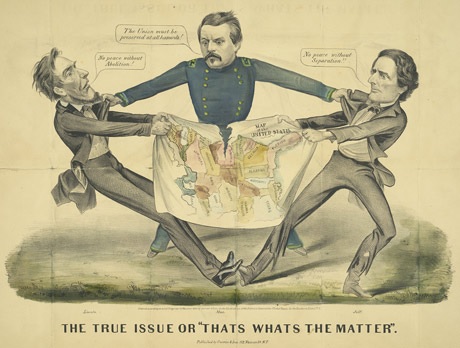
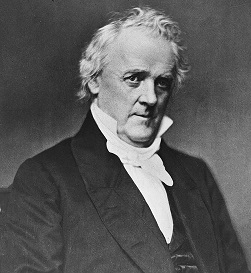 President Buchanan made a few token efforts to resupply the fort, but otherwise followed his famous “stall until it’s Lincoln’s problem” strategy – pretty much his approach to everything between November 1860 and March 1861. Lincoln took office to discover he had less than six weeks to figure out what to do about Sumter.
President Buchanan made a few token efforts to resupply the fort, but otherwise followed his famous “stall until it’s Lincoln’s problem” strategy – pretty much his approach to everything between November 1860 and March 1861. Lincoln took office to discover he had less than six weeks to figure out what to do about Sumter.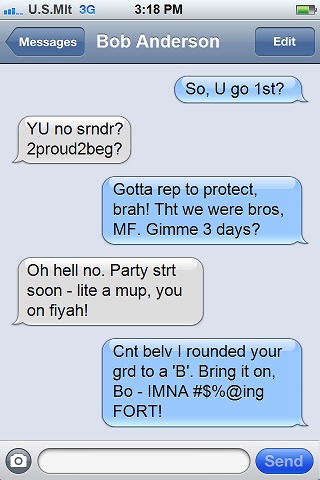
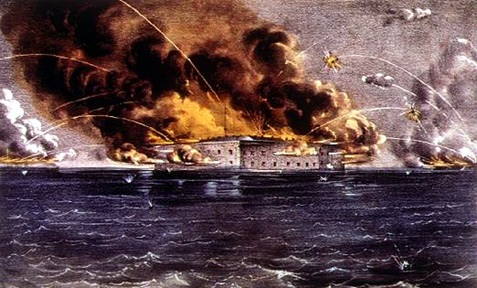 Fort Sumter, as it turns out, was a very forty fort. It was designed to withstand and repulse way cray attacks by sea. The cannons available to the Confederacy, pulled into place by horses and firing balls capable of being loaded by men in a hurry, simply couldn’t do real damage to its walls.
Fort Sumter, as it turns out, was a very forty fort. It was designed to withstand and repulse way cray attacks by sea. The cannons available to the Confederacy, pulled into place by horses and firing balls capable of being loaded by men in a hurry, simply couldn’t do real damage to its walls.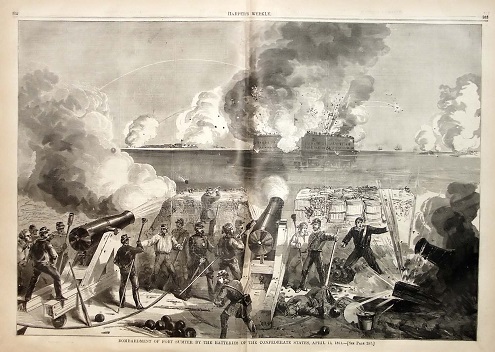 Cannons fired from multiple locations, flames and smoke and explosions – good times. Anderson eventually had remaining munitions dumped to prevent them igniting and blowing up the whole place from the inside. The tides carried the barrels back to the fort walls, where incoming fire ignited them – adding to the fireworks and the distinct impression perhaps Mrs. Chestnut’s friends were correct regarding God’s opinion of the matter.
Cannons fired from multiple locations, flames and smoke and explosions – good times. Anderson eventually had remaining munitions dumped to prevent them igniting and blowing up the whole place from the inside. The tides carried the barrels back to the fort walls, where incoming fire ignited them – adding to the fireworks and the distinct impression perhaps Mrs. Chestnut’s friends were correct regarding God’s opinion of the matter.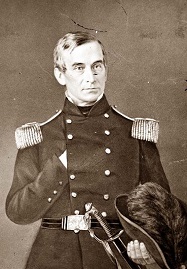 Anderson surrendered around noon the next day. A cannon misfired during a final ceremonial salute to Old Gory and the resulting explosion killed two young soldiers.
Anderson surrendered around noon the next day. A cannon misfired during a final ceremonial salute to Old Gory and the resulting explosion killed two young soldiers.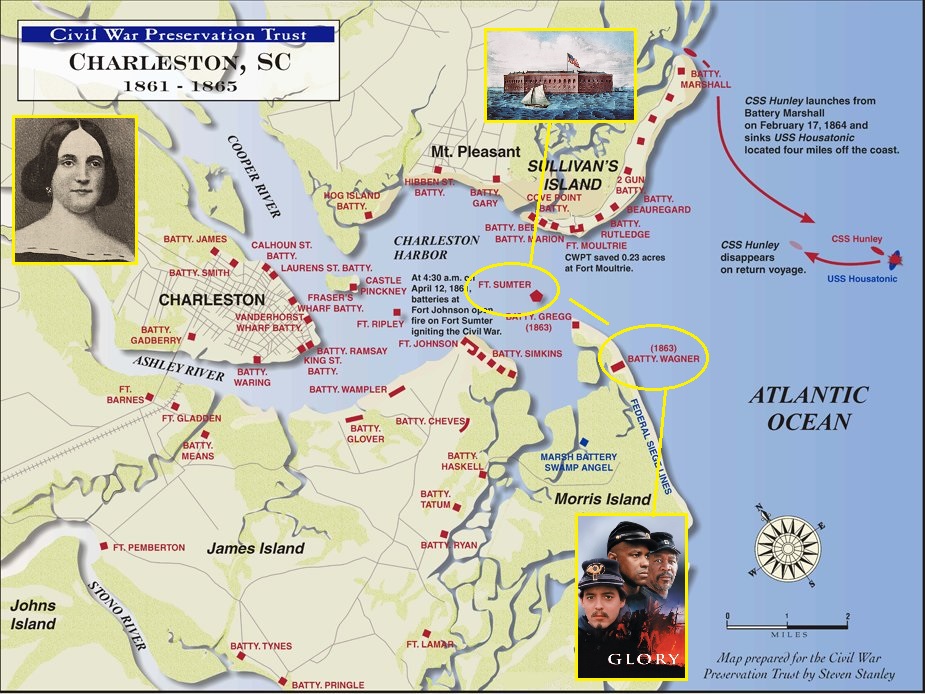
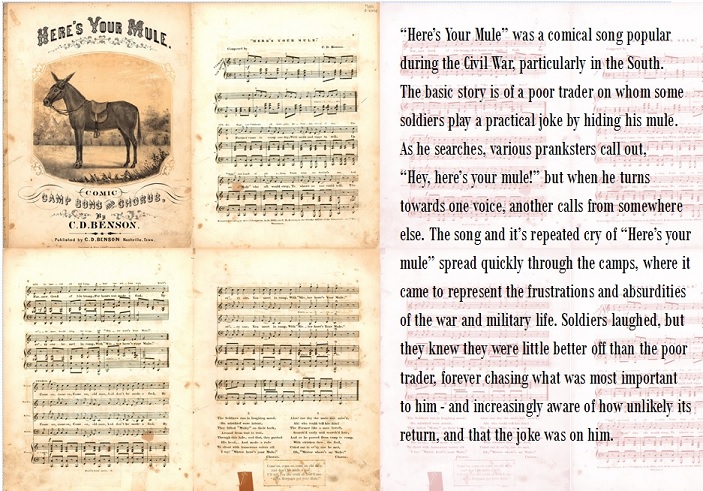
 One of the most bizarre mischaracterizations of history is the idea that in the beginning, when God created the heavens and the earth, the Lord made the North free, and just, without prejudice or malice. He saw the North, and declared that it was ‘good’.
One of the most bizarre mischaracterizations of history is the idea that in the beginning, when God created the heavens and the earth, the Lord made the North free, and just, without prejudice or malice. He saw the North, and declared that it was ‘good’.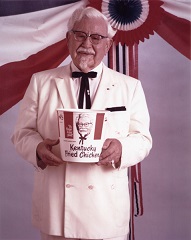 In reality, by the dawn of the 19th century there was slavery pretty much everywhere in the United States. More in some places than others, but it was a thing all over. There were abolitionists as well – pretty much everywhere – carrying on about the evil of the peculiar institution and making everyone unhappy.
In reality, by the dawn of the 19th century there was slavery pretty much everywhere in the United States. More in some places than others, but it was a thing all over. There were abolitionists as well – pretty much everywhere – carrying on about the evil of the peculiar institution and making everyone unhappy. Besides, they already had an entirely different class of not-quite-people to exploit and dehumanize. In the elite world of historiography, we call them the “Irish.”
Besides, they already had an entirely different class of not-quite-people to exploit and dehumanize. In the elite world of historiography, we call them the “Irish.” The cotton gin, as every middle school history teacher can tell you, made cotton production what we historians call ‘way cray’ more profitable – thus cementing slavery as an ‘essential’ institution for decades past its anticipated life span. Unintended consequences suck.
The cotton gin, as every middle school history teacher can tell you, made cotton production what we historians call ‘way cray’ more profitable – thus cementing slavery as an ‘essential’ institution for decades past its anticipated life span. Unintended consequences suck.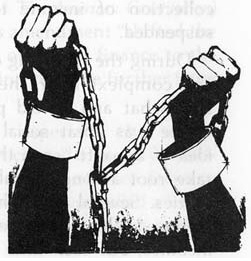 Well, obviously the south is full of sinners. Not like us – we’re good people. That’s why we abolished it.
Well, obviously the south is full of sinners. Not like us – we’re good people. That’s why we abolished it.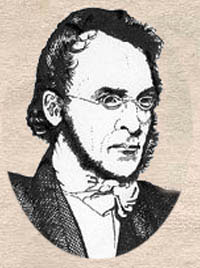 Wages [referring to ‘free’ factory labor in the North] is a cunning device of the devil, for the benefit of tender consciences who would retain all the advantages of the slave system without the expense, trouble, and odium of being slaveholders. (Orestes A. Brownson, 1840)
Wages [referring to ‘free’ factory labor in the North] is a cunning device of the devil, for the benefit of tender consciences who would retain all the advantages of the slave system without the expense, trouble, and odium of being slaveholders. (Orestes A. Brownson, 1840) The plot had more holes than Battlestar Galactica, and nearly as many characters we still can’t quite figure out whether to love or despise. (Say what you like about the Cylons, they at least had moral clarity.)
The plot had more holes than Battlestar Galactica, and nearly as many characters we still can’t quite figure out whether to love or despise. (Say what you like about the Cylons, they at least had moral clarity.)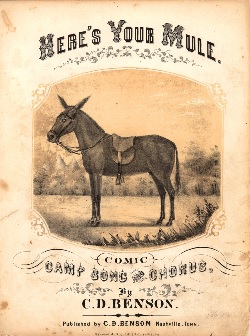
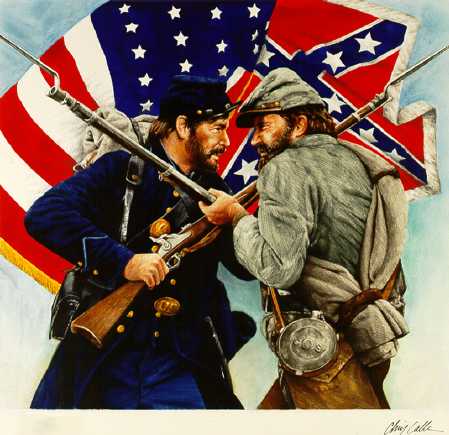 The American Civil War is one of the most written about, discussed, reenacted, and debated events in all of human history. It was important, of course – major battles and nation-changing outcomes and all – but I’m not sure that’s its primary fascination for us.
The American Civil War is one of the most written about, discussed, reenacted, and debated events in all of human history. It was important, of course – major battles and nation-changing outcomes and all – but I’m not sure that’s its primary fascination for us.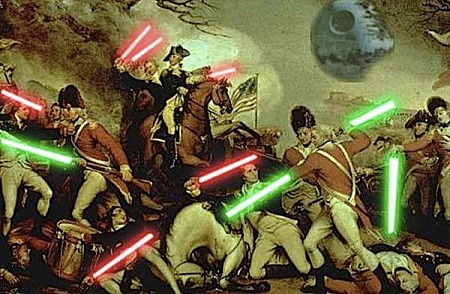 They’d declared independence together less than a century before and fought the British together – twice. Both extolled the same form of government (even after the South attempted to secede, the ‘nation’ they created for themselves was essentially the same in structure as the one they’d left). They quoted the same Declaration of Independence and revered the same Constitution.
They’d declared independence together less than a century before and fought the British together – twice. Both extolled the same form of government (even after the South attempted to secede, the ‘nation’ they created for themselves was essentially the same in structure as the one they’d left). They quoted the same Declaration of Independence and revered the same Constitution. In every region of the country, the dominant social, political, and economic class was composed almost entirely of straight white educated land-owning males. Most of them looked down on pretty much everyone else.
In every region of the country, the dominant social, political, and economic class was composed almost entirely of straight white educated land-owning males. Most of them looked down on pretty much everyone else.
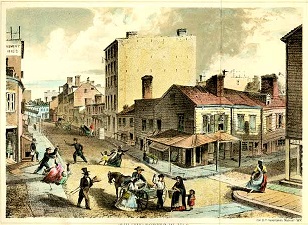 It’s a mischaracterization, however, to imagine the North was mostly industrialized by 1860. The majority of Northerners lived and worked on small farms or in small businesses, growing food for themselves and their families and perhaps trading or selling surplus for other goods. Most factories were in the North, but most of the North wasn’t factories.
It’s a mischaracterization, however, to imagine the North was mostly industrialized by 1860. The majority of Northerners lived and worked on small farms or in small businesses, growing food for themselves and their families and perhaps trading or selling surplus for other goods. Most factories were in the North, but most of the North wasn’t factories. Southern geography meant agriculture on an entirely different scale. Long growing seasons, flatter lands, different soil – this was God’s way of promoting sugar, tobacco, and most of all, cotton. It was the Elvis of cash crops.
Southern geography meant agriculture on an entirely different scale. Long growing seasons, flatter lands, different soil – this was God’s way of promoting sugar, tobacco, and most of all, cotton. It was the Elvis of cash crops.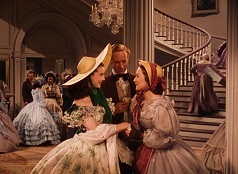 This will be a problem for the South. That’s more foreshadowing – I hope I don’t ruin the ending for anyone.
This will be a problem for the South. That’s more foreshadowing – I hope I don’t ruin the ending for anyone. Not liking someone, not hiring them, or even not wanting to live next to them, didn’t mean you didn’t have to deal with them at all. The variety of cultures, languages, foods, beliefs, etc., forced a sort of tolerance and accommodation foreign to the South. At the same time, capitalist ideals and an early sort of ‘Social Darwinism’ largely prevented that accommodation from becoming too ‘kumbaya’.
Not liking someone, not hiring them, or even not wanting to live next to them, didn’t mean you didn’t have to deal with them at all. The variety of cultures, languages, foods, beliefs, etc., forced a sort of tolerance and accommodation foreign to the South. At the same time, capitalist ideals and an early sort of ‘Social Darwinism’ largely prevented that accommodation from becoming too ‘kumbaya’.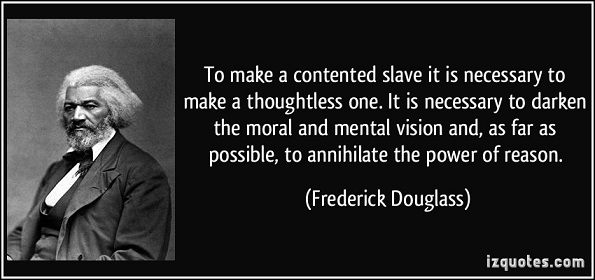

 Mr. Auld was no fool. He knew that control – whether of populations or individuals – begins through the information to which they have access. Whoever controls knowledge controls everything else – especially when it comes to maintaining a system based on privilege and inheritance.
Mr. Auld was no fool. He knew that control – whether of populations or individuals – begins through the information to which they have access. Whoever controls knowledge controls everything else – especially when it comes to maintaining a system based on privilege and inheritance. There’s nothing wrong with learning to be content with what you have, but that’s a choice we can only make if we have some glimpse of the alternatives. I may wish I were rich, but as I endure Kardashians and Trumps, there are trade-offs I’m not willing to take to get there.
There’s nothing wrong with learning to be content with what you have, but that’s a choice we can only make if we have some glimpse of the alternatives. I may wish I were rich, but as I endure Kardashians and Trumps, there are trade-offs I’m not willing to take to get there. Douglass connected with a character who was in some ways like himself – not in wise words or holy determination, but in the ways his life sucked, like being a slave. This fictional character, however, was able to demonstrate at least one possible way to endure or even flourish in the ugly, imperfect situation in which he was mired. He resonated far more than an idealized hero-figure of some sort could have, belching platitudes while fighting off the darkness with patriotic pluck.
Douglass connected with a character who was in some ways like himself – not in wise words or holy determination, but in the ways his life sucked, like being a slave. This fictional character, however, was able to demonstrate at least one possible way to endure or even flourish in the ugly, imperfect situation in which he was mired. He resonated far more than an idealized hero-figure of some sort could have, belching platitudes while fighting off the darkness with patriotic pluck. Learning is dangerous, but not to the person doing the learning. It can hurt along the way, but you usually end up better off for it.
Learning is dangerous, but not to the person doing the learning. It can hurt along the way, but you usually end up better off for it. The Inquisitions and Puritans and Assigners of Scarlet Letters in New Testament times have no such excuse. If their faith is what they claim, it’s a faith based on light and truth and – above all – informed choice. Jesus and Paul may not have had much in common, but there’s no record either ever lied or hid anything they didn’t want the world to see. They didn’t want to capture anyone who didn’t wish to be won.
The Inquisitions and Puritans and Assigners of Scarlet Letters in New Testament times have no such excuse. If their faith is what they claim, it’s a faith based on light and truth and – above all – informed choice. Jesus and Paul may not have had much in common, but there’s no record either ever lied or hid anything they didn’t want the world to see. They didn’t want to capture anyone who didn’t wish to be won. 